The Old and New Testament Library Series (63 vols.)
Digital Logos Edition
Overview
The Old and New Testament Library series offers authoritative commentary on many Old and New Testament books and provides additional theological works that closely examine major aspects of both testaments. This important series contains modern works written by noted authors as well as classic volumes of scholarship. Commentaries in this series provide fresh translations based on the best available ancient manuscripts, offer critical portrayals of the historical world in which the books were created, pay careful attention to their literary design, and present a theologically perceptive exposition of the text. Individually, each of these commentaries allow teachers and students to hone in on unique elements present in a stand-alone book of the Bible. Together, the power of these commentaries and theological works provides a plurality of perspectives that together facilitate better interpretation and clarity from the podium, behind the pulpit, and beyond.
For the most up to date version of this collection, see here.
Key Features
- Contains relevant commentary, exegesis, and literary criticism
- Observations by some of today’s leading biblical scholars
- Opens fresh perspectives on Pauline studies
- Fresh insights into well-known Old Testament books
Product Details
- Title: The Old and New Testament Library Series (63 vols.)
- Publisher: Westminster John Knox
- Volumes: 63
- Pages: 25,001
Individual Titles
- Genesis: A Commentary, Revised Edition by Gerhard von Rad
- The Book of Exodus: A Critical, Theological Commentary by Brevard Childs
- Leviticus: A Commentary by Erhard S. Gerstenberger
- Numbers: A Commentary by Martin Noth
- Deuteronomy: A Commentary by Richard D. Nelson
- Joshua: A Commentary by Richard D. Nelson
- Judges: A Commentary by Susan Niditch
- Ruth: A Commentary by Kirsten Nielsen
- I & II Samuel: A Commentary by A. Graeme Auld
- I & II Kings: A Commentary by Marvin A. Sweeney
- I & II Chronicles: A Commentary by Sara Japhet
- Ezra-Nehemiah: A Commentary by Joseph Blenkinsopp
- Esther: A Commentary by Jon D. Levenson
- The Book of Job: A Commentary by Norman Habel
- The Psalms: A Commentary by Artur Weiser
- Proverbs: A Commentary by Richard Clifford
- Ecclesiastes: A Commentary by James L. Crenshaw
- Song of Songs: A Commentary by J. Cheryl Exum
- Isaiah 1-12: A Commentary, Second Edition by Otto Kaiser
- Isaiah 13-39: A Commentary by Otto Kaiser
- Isaiah 40-66: A Commentary by Claus Westermann
- Isaiah: A Commentary by Brevard S. Childs
- Jeremiah: A Commentary by Leslie C. Allen
- Lamentations: A Commentary by Adele Berlin
- Ezekiel: A Commentary by Walther Eichrodt
- Daniel: A Commentary by Carol A. Newsom
- Hosea: A Commentary by James Mays
- Joel and Obadiah: A Commentary by John Barton
- Amos: A Commentary by Jorg Jeremias
- Jonah: A Commentary by James Limburg
- Micah: A Commentary by James L. Mays
- Micah: A Commentary by Daniel L. Smith-Christopher
- Nahum, Habakkuk, and Zephaniah: A Commentary by J. J.M. Roberts
- Haggai and Zechariah 1-8: A Commentary by David L. Petersen
- Zechariah 9-14 and Malachi: A Commentary by David L. Petersen
- Exile and Restoration by Peter R. Ackroyd
- A History of Israelite Religion in the Old Testament Period, Volume I: From the Beginnings to the End of the Monarchy by Rainer Albertz
- A History of Israelite Religion in the Old Testament Period, Volume II: From the Exile to the Maccabees by Rainer Albertz
- Introduction to the Old Testament, Third Edition by J. Alberto Soggin
- Jewish Wisdom in the Hellenistic Age by John J. Collins
- Old Testament Theology, Volume I by Horst Dietrich Preuss
- Old Testament Theology, Volume II by Horst Dietrich Preuss
- Theology of the Old Testament, Volume One by Walther Eichrodt
- Theology of the Old Testament, Volume Two by Walther Eichrodt
- Mark: A Commentary by M. Eugene Boring
- Luke: A Commentary by John T. Carroll
- John: A Commentary by Marianne Meye Thompson
- Acts: A Commentary by Carl R. Holladay
- II Corinthians: A Commentary by Frank Matera
- Galatians: A Commentary by Martinus C. de Boer
- Ephesians: A Commentary by Stephen E. Fowl
- Philippians and Philemon: A Commentary by Charles B. Cousar
- Colossians: A Commentary by Jerry L. Sumney
- I & II Thessalonians: A Commentary by M. Eugene Boring
- I, II Timothy & Titus: A Commentary by Raymond Collins
- Hebrews: A Commentary by Luke Timothy Johnson
- I, II, & III John: A Commentary by Judith M. Lieu
- Revelation: A Commentary by Brian K. Blount
- Theology and Ethics in Paul by Victor Paul Furnish
- History and Theology in the Fourth Gospel by J. Louis Martyn
- The Word in This World by Paul W. Meyer
- Images of the Church in the New Testament by Paul Sevier Minear
- Paul and the Anatomy of Apostolic Authority by John Howard Schutz
This title is included in the following collections
You can save when you purchase this product as part of a collection.
The Old and New Testament Libr...
$2,072.35$1,649.992025 Researcher Diamond Librar...
$2,999.99$2,249.992025 Verbum Researcher Diamond
$2,999.99$2,249.992025 포트폴리오 서재
$2,999.99$2,549.99
- $3,149.99$2,677.49
- $2,999.99
- $2,999.99
- $3,999.99$3,399.99
- $4,749.99$3,562.49
- $4,899.99$4,164.99
- $6,399.99$5,439.99
- $5,999.99
- $5,999.99
- $23,999.99$17,999.99
- $24,999.99
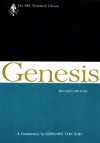
This volume follows Gerhard von Rad’s exploration of the book of Genesis. Explore the origins of the earth, the creation of man, and the initial redemptive plan of God through an interpretive lens that facilitates a close reading of the text from a critical perspective.
Gerhard von Rad (1901–1971) was a prominent German Old Testament scholar. In the years following the two World Wars, von Rad focused on Old Testament studies in response to anti-Semitic tendencies in German academia. He is noted for pioneering the tradition-historical method of biblical studies. He taught at the University of Jena, University of Gottingen, and Ruprecht Karl University of Heidelberg.
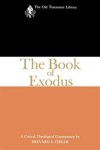
Taking a pioneering approach to commentary writing, Brevard Childs gives an entirely original treatment to the book of Exodus. Apart from the philological notes and translation, this commentary includes a form-critical section, looking at the growth of the tradition in its previous stages; a consideration of the meaning of the text in its present form; and a consideration of its meaning in its total Old Testament context.
Brevard S. Childs (1923–2007), Old Testament professor at Yale University from 1958 until he retired in 1999. Childs had a significant positive influence in biblical theology by insisting that interpreters should be Christians who view the text as Scripture and regard the final form of the canon as the norm for interpretation. However, he held to many liberal views about Scripture, denying that Moses wrote the Pentateuch and seeing elements of pagan mythology in the Bible.
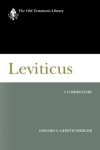
A detailed commentary on book of Leviticus serves as a major addition to the Old Testament Library series. The author’s detailed exegesis provides an academic approach to this important Old Testament book that is often referenced in the New Testament. His commentary takes into account both theology and anthropology to provide a balanced treatment for modern scholars.
Erhard S. Gerstenberger is Professor Emeritus of Old Testament Literature at Marburg University in Germany. He is the author of numerous studies of the Old Testament.
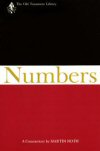
In this examination of Numbers, Martin Noth explores the community of the twelve tribes, the organization of the Levites, various divine ordinances, and other important themes in the book of Numbers. Also included is an appendix on daughters’ rights of inheritance.
Martin Noth was a German scholar of the Hebrew Bible who specialized in the pre-Exilic history of the Hebrews. With Gerhard von Rad he pioneered the traditional-historical approach to biblical studies, emphasizing the role of oral traditions in the formation of the biblical texts. He died in 1968.
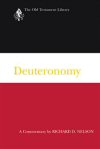
Richard D. Nelson provides readers with an exceptional commentary on Deuteronomy in this edition of the Old Testament Library series. His emphasis on critical interaction provides interpreters with many avenues for proper exegesis.
Richard D. Nelson is Associate Dean for Academic Affairs and W. J. A. Power Professor of Biblical Hebrew and Old Testament Interpretation at the Perkins School of Theology. He is the author of numerous books on Old Testament history and interpretation.
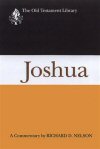
Richard D. Nelson addresses the textual problems critical to a full understanding of Joshua and offers historical, literary, and theological insights in this balanced commentary. The redaction history of the text is examined and presented in a way that brings clarity to interpretation for an academic audience.
Richard D. Nelson is Associate Dean for Academic Affairs and W. J. A. Power Professor of Biblical Hebrew and Old Testament Interpretation at the Perkins School of Theology. He is the author of numerous books on Old Testament history and interpretation.
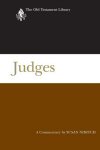
Susan Niditch’s commentary on the book of Judges pays careful attention to the literary and narrative techniques of the text and yields fresh readings of the book’s difficult passages: stories of violence, ethnic conflict, and gender issues. Niditch aptly and richly conveys the theological impact and enduring significance of these stories.
Susan Niditch is Samuel Green Professor of Religion at Amherst College. She is the author of many books, including Oral World and Written Word: Ancient Israelite Literature in the acclaimed Library of Ancient Israel, published by Westminster John Knox Press.
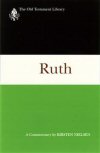
Kirsten Nielsen’s comments on the book of Ruth paint a rich and subtle portrait of its characters, carefully tracing the many connections between this story and other biblical passages, such as the stories of Judah and Tamar. This volume is a powerful addition to this critically acclaimed Old Testament Library series.
Kirsten Nielsen is Professor in the Department of Biblical Studies at the University of Aarhus, Denmark.
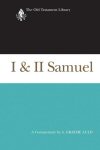
In this new addition to the Old Testament Library series, A. Graeme Auld writes, “This book is about David.” The author demonstrates how all the other personalities in First and Second Samuel—including Samuel, for whom the books were named—are present so that we may see and know David better. These fascinating stories detail the lives of David, his predecessors, and their families. Auld explains that though we read these books from beginning to end, we need to understand that they were composed from the end to the beginning. By reconstructing what must have gone before, the story of David sets up and explains the succeeding story of monarchy in Israel.
A. Graeme Auld is professor emeritus of Hebrew Bible at the University of Edinburgh, Scotland.
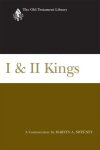
This volume offers a close reading of the historical books of First and Second Kings, concentrating on not only issues in the history of Israel but also the literary techniques of storytelling used in these books. Marvin A. Sweeney provides a major contribution to the prominent Old Testament Library series with advanced discussions of textual difficulties in the books of Kings as well as compelling narrative interpretations.
Marvin A. Sweeney is professor of Hebrew Bible at Claremont School of Theology and professor of religion at Claremont Graduate University.
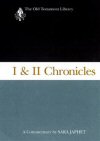
In this volume, a part of the Old Testament Library series, Sara Japhet explores the books of I and II Chronicles. Her critical perspective is both thorough and presented in a way that provides clarity for scholars and exegetes.
Sara Japhet is Yehezkel Kaufmann Professor of Bible at The Hebrew University of Jerusalem. She received the Israel Prize for Biblical Studies in 2004 and was elected President of the World Union of Jewish Studies in 2006.
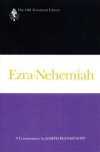
This volume, a part of the Old Testament Library series, explores the books of Ezra and Nehemiah. This commentary presents interpreters with the exegetical issues in the text from a scholarly, critical standpoint.
Joseph Blenkinsopp is John A. O’Brien Professor Emeritus of Biblical Studies at the University of Notre Dame in Indiana. He is also the author of Opening the Sealed Book: Interpretations of the Book of Isaiah in Late Antiquity, Interpretation: A Bible Commentary for Teaching and Preaching Ezekiel, and Treasures Old and New: Essays in the Theology of the Pentateuch.
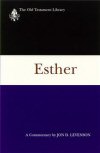
The book of Esther has been preserved in ancient texts that diverge greatly from each other. As a result, Jews and Protestants usually read a version which is shorter than that of most Catholic or Orthodox Bibles. In this volume, Levenson capably guides readers through both versions, demonstrating their coherence and their differences.
Jon D. Levenson is Albert A. List Professor of Jewish Studies at Harvard Divinity School in Cambridge, Massachusetts. He is the author of many books, including Resurrection and the Restoration of Israel: The Ultimate Victory of the God of Life and (with Kevin J. Madigan).
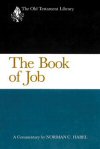
In this volume, Norman Habel takes on the humbling task of writing a commentary on such a classic work as the book of Job, a text that is complex and unclear at many points. He includes notes on linguistic elements and highlights the aspects of literature present within the text.
Norman C. Habel is Professorial Fellow at Flinders University and at Adelaide College of Divinity in Australia.
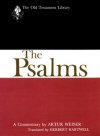
Weiser’s commentary focuses on the book of Psalms. Specially highlighted is the role of feasts and festivals in the life of ancient Israel. Readers will gain a focused perspective into the cultural background of the Psalms along with accompanying interpretation.
Artur Weiser was a German Old Testament scholar who wrote, edited, and translated many books, including The Psalms: A Commentary and The Old Testament: It's Formation and Development.
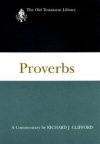
Through translation, technical notes, and insightful commentary, Richard Clifford sheds new understanding on Proverbs. By focusing on the rhetoric of Proverbs, Clifford demonstrates how the book fosters a lifelong search for wisdom, and enables readers to see how the instructions and sayings are concerned with contemporary issues.
Richard J. Clifford is Visiting Professor of Old Testament at Boston College School of Theology and Ministry in Chestnut Hill, Massachusetts. A former President of Weston Jesuit School of Theology, he was Founding Dean of the Boston College School of Theology and Ministry from 2008-2010. He has previously served as General Editor of the Catholic Biblical Quarterly and is a past President of the Catholic Biblical Association.
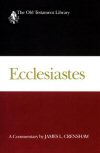
An expert on biblical wisdom literature guides readers through an in-depth exploration of Ecclesiastes. This volume serves as a prime example of excellence and clear teaching in this critically acclaimed Old Testament Library series.
James L. Crenshaw is professor of Old Testament at Duke Divinity School in Durham, North Carolina. He has held numerous professional and academic positions, including editor of the Society of Biblical Literature Monograph Series. He was also the recipient of a Guggenheim Fellowship. He is the author of Old Testament Wisdom: An Introduction, among numerous other publications.
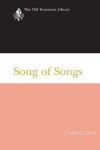
This original commentary highlights the poetic genius of the Song of Songs, one of the most elusive texts of the Hebrew Bible. J. Cheryl Exum illustrates that genius in the way the song demonstrates to its readers that love is as strong as death. She shows how the song immortalizes love, offering a mature sensitivity to how being in love is different for the woman and the man. Many long-standing conundrums in the interpretation of the book are given persuasive solutions in Exum’s verse-by-verse exegesis.
J. Cheryl Exum is professor of biblical studies at the University of Sheffield. The author of numerous scholarly works on the Hebrew Bible, her books include Tragedy and Biblical Narrative, Fragmented Women: Feminist (Sub)versions of Biblical Narratives as well as Plotted, Shot, and Painted: Cultural Representations of Biblical Women. She is executive editor of the journal Biblical Interpretation and a director of Sheffield Phoenix Press.
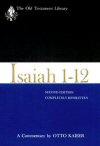
This volume, a part of the Old Testament Library, explores the first twelve chapters of Isaiah with expert interpreter, Otto Kaiser. He answers questions of authenticity about the text and focuses on historical background.
Otto Kaiser is Professor Emeritus of Old Testament at Philipps University of Marburg in Germany.
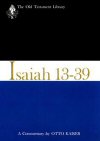
Chapters 13–39 of Isaiah are covered, a continuation of Kaiser’s volume on the first twelve chapters of Isaiah. Kaiser continues to answer questions of authenticity about the text and focuses on historical background.
Otto Kaiser is Professor Emeritus of Old Testament at Philipps University of Marburg in Germany.
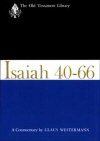
This volume in the Old Testament Library series explores chapters 40–66 of the book of Isaiah, with Westermann’s work providing fresh and authoritative treatment of the text.
Claus Westermann was emeritus professor at the University of Heidelberg. Besides his three-volume commentary on Genesis, he is renowned for his many exegetical and theological treatments of the Old Testament, including Basic Forms of Prophetic Speech, Praise and Lament in the Psalms, Elements of Old Testament Theology, and The Promises to the Fathers. He was also co-editor of Theological Lexicon of the Old Testament.
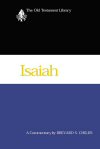
In this important addition to the Old Testament Library, renowned scholar Brevard S. Childs writes on the Old Testament’s most important theological book. He furnishes a fresh translation from the Hebrew and discusses questions of text, philology, historical background, and literary architecture, and then proceeds with a critically informed, theological interpretation of the text.
Brevard S. Childs is Sterling Professor of Divinity and fellow of Davenport College, The Divinity School, Yale University, and author of Biblical Theology in Crisis and The Book of Exodus (Old Testament Library), both from Westminster John Knox Press.
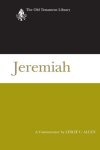
This book of Jeremiah offers a remarkable range of literature, including prose, poetry, homilies, oracles, and proverbs. This commentary understands the book as a work of religious literature, to be examined in its final form, yet with careful attention to the historical contexts of writing and development through which the text took shape. Jeremiah proclaimed a message of coming judgment, because of the people's unfaithful worship, and yet also emphasized the call to know Yahweh and to live as God’s faithful people. Through it all, Leslie C. Allen identifies a trajectory of grace, in which the proclamations of doom can be understood within the context of promises for a renewed future.
Leslie C. Allen is a senior professor of Old Testament at Fuller Theological Seminary in Pasadena, California. He has also written commentaries on Psalms and Ezekiel for the Word Biblical Commentary and on Chronicles for The New Interpreter’s Bible.
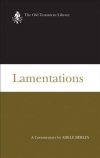
The Old Testament Library provides an authoritative treatment of every major and important aspect of the Old Testament. This commentary on Lamentations offers a fresh translation, discussing questions of historical background and literary architecture before providing a theologically sensitive exposition of the text.
Adele Berlin is Robert H. Smith Professor of Biblical Studies at the University of Maryland. The author of three biblical commentaries and Biblical Poetry through Medieval Jewish Eyes, she is also coeditor of The Jewish Study Bible (Oxford), which received a National Jewish Book Award in 2004.
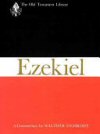
This volume brings to life the ministry and message of one of the most neglected of the major Old Testament prophets, and illuminates one of the most fascinating chapters on the history of Israel. Besides giving a verse-by-verse commentary of the book of Ezekiel, Walther Eichrodt fully discusses its origin and composition and all the knotty problems of the prophet’s own activity.
Walther Eichrodt is the author of several books on the Old Testament, including three volumes in the Old Testament Library series.
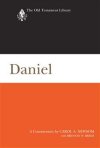
The book of Daniel is a literary rich and complex story known for its apocalyptic style. Written in both Hebrew and Aramaic, the book begins with stories of Daniel and three Jewish young men Hananiah (Shadrach), Mishael (Meshach), and Azariah (Abednego) who are exiles among the remnant from Judea in Babylon in sixth century B.C.E.. It ends with Daniel’s visions and dreams about the Jewish community that offer comfort and encouragement as they endure persecution and hope for deliverance into God’s kingdom.
Newsom’s commentary offers a fresh study of Daniel in its historical context. Newsom further analyzes Daniel from literary and theological perspectives. With her expert commentary, Newsom’s study will be the definitive commentary on Daniel for many years to come.
Carol A. Newsom is the Charles Howard Candler Professor of Old Testament at Candler School of Theology, Emory University and was the 2011 President of the Society of Biblical Literature. She is the author and editor of many books, including The Women's Bible Commentary, Third Edition.
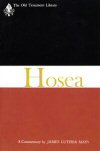
This commentary presents a form critical perspective from well-known scholar on the Minor Prophets, James Mays. He presents critical and theological information and discusses possible redactions to the text.
James L. Mays is Cyrus M. McCormick Professor Emeritus of Hebrew and Old Testament Interpretation at Union Theological Seminary in Richmond, Virginia.
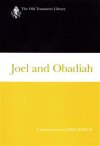
In Joel and Obadiah, John Barton furnishes a fresh translation of the ancient manuscripts and discusses questions of historical background and literary architecture. Just as with other commentaries in this series, the author provides a theologically sensitive and critically informed interpretation of the text.
John Barton is Oriel Professor of the Interpretation of Holy Scripture at the University of Oxford.
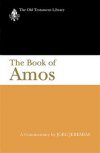
Jorg Jeremias presents a critical presentation of this Minor Prophetic book, positing that the book was created in stages, both exilic and post-exilic. His creative reconstruction of its formation is a unique and insightful help for students and teachers alike.
Jorg Jeremias is Professor Emeritus of Old Testament at Phillips University in Marburg, Germany.
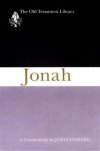
In this volume, James Limburg examines Jonah with several questions in mind: How did the story originate? What is its place in the Bible? How did the New Testament understand the story? How has the story been understood in Judaism and in Islam? What might it mean for people today? And what does it have to say about God, about the human condition, and even about God and nature? In reviewing the book, Limburg gives special attention to the many contributions of artists, musicians, painters, and sculptors who, he says, may have been the best interpreters of Jonah. He also keeps in mind the literary dimension of the text and takes great care to follow the divisions of the book as they were defined by Jewish scribal tradition.
James Limburg is Professor Emeritus of Old Testament at Luther Seminary in St. Paul, Minnesota.
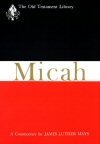
This much-needed commentary provides an authoritative guide to a better understanding of the often-neglected book of Micah. It gives insight into the individual sayings of Micah, to the way they were understood and used as they were gathered into the growing collection, and to their role in the final form of the document. “I am convinced,” says James L. Mays, that Micah “is not just a collection of prophetic sayings, but is the outcome of a history of prophetic proclamations and is itself, in its final form, prophecy.”
James L. Mays is Cyrus M. McCormick Professor Emeritus of Hebrew and Old Testament Interpretation at Union Theological Seminary in Richmond, Virginia.
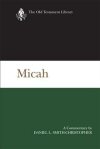
One of the Twelve Minor Prophetic books, the book of Micah contains the famous quote “what does the LORD require of you but to do justice, and to love kindness, and to walk humbly with your God?” (Micah 6:8). However, many of us do not know the circumstances that led the prophet to these famous words. This serious commentary by Daniel Smith-Christopher analyzes the historical, social, and literary context of the book of Micah. Smith-Christopher presents a challenging perspective on Micah, who is here represented as an angry opposition figure to King Hezekiah and the Jerusalem elite. In Micah, we hear from those Judeans who suffered Assyrian, and later Babylonian, force but who hold Jerusalem’s military folly to blame as much as the Empires of his day. Smith-Christopher’s fresh reading of Micah is a stimulating addition to the Old Testament Library that will well serve both the academy and the church.
Daniel L. Smith-Christopher (MDiv, AMBS; DPhil, Oxford, Old Testament) is Professor of Theological Studies and Director of Peace Studies at Loyola Marymount College. The author of fifteen books and over forty scholarly articles and book chapters, he frequently appears as a guest on national media outlets such as The History Channel, A&E, PBS, and The National Geographic Explorer Channel.
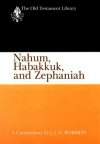
This commentary builds on the work of previous scholarship and addresses contemporary issues. It gives serious attention to questions of textual criticism, philology, history, and Near Eastern backgrounds and is sensitive to the literary conventions characteristic of the prophetic literature of the Old Testament. The book is an earnest attempt to hear the message of the ancient prophets, a message that remains relevant today.
J.J.M. Roberts is the William Henry Green Professor of Old Testament Literature Emeritus at Princeton Theological Seminary. He is the author or coauthor of The Hand of the Lord: A Reassessment of the “Ark Narrative” of 1 Samuel, Commentary on Nahum, Habakkuk, and Zephaniah, The Bible and the Ancient Near East, and Hebrew Inscriptions.
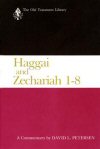
Critical and historical components contribute to a helpful and balanced work from commentator, David L. Petersen. His fresh and authoritative treatment of these important Minor Prophets help students of the Word better understand the Old Testament.
David L. Peterson was educated at the College of Wooster and Yale University. Peterson currently serves as professor of Old Testament at Emory University. He has written several titles including A Theological Introduction to the Old Testament, The Prophetic Literature: An Introduction, Prophecy in Ancient Israel, and Late Israelite Prophecy.
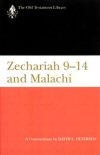
Petersen presents a critical approach that links the text to the historical setting in which it was written. His fresh and authoritative treatment of these important Minor Prophets help students of the Word better understand the Old Testament.
David L. Peterson was educated at the College of Wooster and Yale University. Peterson currently serves as professor of Old Testament at Emory University. He has written several titles including A Theological Introduction to the Old Testament, The Prophetic Literature: An Introduction, Prophecy in Ancient Israel, and Late Israelite Prophecy.
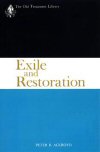
This study of sixth-century Hebrew thought, a part of the Old Testament Library series, grew out of Peter Ackroyd’s influential Hulsean Lectures on the same topic. This general survey covers a key topic for understanding the plan of God for his people throughout the Old Testament.
Peter R. Ackroyd attended Downing College in Cambridge and upon graduation he was an Anglican minister, university lecturer, as well as a Congregational minister. He was also a part of the Society of Old Testament Study and the Society for Biblical Literature. He died in 2005.
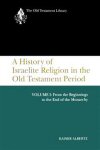
In the first of two volumes, a comprehensive history of Israelite religion is offered as a strong addition to the Old Testament Library series. A rich treatment of their mode of worship draws from multiple books of the Bible.
Rainer Albertz is Professor of Old Testament at the University of Munster in Germany.
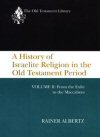
This much-anticipated second volume of A History of Israelite Religion begins at the period of the exile and carries the investigation of Israelite religion to the period of the Maccabean revolt, thereby concentrating its focus on a period given less prominence in other studies of the type.
Rainer Albertz is Professor of Old Testament at the University of Munster in Germany.
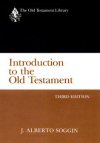
J. Alberto Soggin interacts with the Hebrew Bible in this standard survey, now in its third edition. His critique of these texts as a whole provide a nuanced and helpful discussion suitable for an academic audience.
J. Alberto Soggin (1926–2010) was an internationally renowned biblical scholar and the author of many books on the Old Testament and Old Testament history. He previously taught at the Waldensian Faculty of Theology and La Sapienza University in Rome.
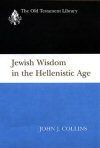
Jewish wisdom flourished under Hellenism in the books of Ben Sira and the Wisdom of Solomon, as well as in a recently discovered sapiential text from Qumran. In this book, internationally known author John Collins presents a compelling description and analysis of these three texts and their continuing wisdom traditions.
John J. Collins is Holmes Professor of Old Testament Criticism and Interpretation at Yale Divinity School. He has served as president of both the Society of Biblical Literature and the Catholic Biblical Association. His many books include Beyond the Qumran Community, King and Messiah as Son of God, and The Apocalyptic Imagination.
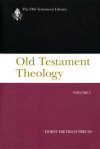
Horst Preuss begins a comprehensive, two volume analysis of the theology of the Old Testament with this edition. He focuses on a detailed assessment of Israel’s responses to God’s acts of election and covenant with them as a people. This highly applicable study provides a theological lens through which to properly understand many of the books of the Old Testament and their relation to the whole.
Horst Dietrich Preuss (1927–1993) was from 1973 to 1992 Professor of Old Testament at the Augustana-Hochschule Neuendettelsau in Germany. He published several books on Old Testament and Old Testament theology.
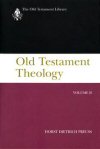
In this second volume continuation of his scholarly work, Horst Preuss provides a comprehensive analysis of the theology of the Old Testament. He focuses on a detailed assessment of Israel’s responses to God’s acts of election and covenant with them as a people. With great care, he leads the reader through the thematic elements present in various texts and provides an overarching theology to explain how they together fit into God’s plan for humanity.
Horst Dietrich Preuss (1927–1993) was from 1973 to 1992 Professor of Old Testament at the Augustana-Hochschule Neuendettelsau in Germany. He published several books on Old Testament and Old Testament theology.
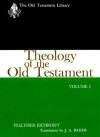
This book, the first of two volumes, offers a comprehensive profiling of the theology contained in the Old Testament. Eichrodt’s thoroughness and clarity in his writing presents readers with cogent argumentation informed by a critical perspective.
Walther Eichrodt is the author of several books on the Old Testament, including three volumes in the Old Testament Library series.
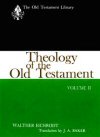
Theology of the Old Testament, Volume Two, the second of two volumes, offers a comprehensive profiling of the theology contained in the Old Testament. Also well-known for his commentary on Ezekiel in the same series, Eichrodt’s writing illumines connections between narratives and unifies the Old Testament books under the overarching theological meaning found when these texts are interpreted as a whole.
Walther Eichrodt is the author of several books on the Old Testament, including three volumes in the Old Testament Library series.
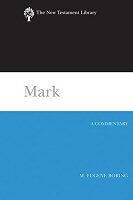
The first New Testament Library volume to focus on a Gospel, this commentary offers a careful reading of the book of Mark. Internationally respected interpreter M. Eugene Boring brings a lifetime of research into the Gospels and Jesus into this lively discussion of the first Gospel.
M. Eugene Boring is professor emeritus of New Testament at Brite Divinity School, Texas Christian University, in Fort Worth, Texas. He is a coauthor of The People’s New Testament, and the author of numerous books of New Testament scholarship, including the best-selling Interpretation commentary on Revelation.
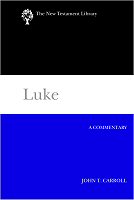
This new, authoritative commentary on the Gospel of Luke epitomizes the New Testament Library series. Combining scholarly rigor and theological insight, John T. Carroll not only focuses on the Gospel text but also makes frequent reference to Luke’s second volume, the book of Acts, to show how the two writings work together to present a full picture of the life of Christ and the work of the apostles. In addition, Carroll includes several illuminating notions about special topics in Luke’s Gospel: a comparison of the birth announcements to Mary and Zechariah, an examination of the role of women, a discussion of wealth and poverty, and insights on the reign of God and the Roman Empire.
John T. Carroll is the Harriet Robertson Fitts Memorial Professor of New Testament at Union Presbyterian Seminary, Richmond, Virginia. He is the author or editor of several books, including The Death of Jesus in Early Christianity, Preaching the Hard Sayings of Jesus, The Return of Jesus in Early Christianity, and The Word in This World.
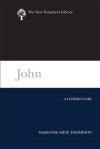
Almost from the earliest days of the church, John’s distinctive presentation of Jesus has provoked discussion about its place among the other Gospels. One cannot help but see the differences from the Synoptics and wonder about the origins and character of John. In this new volume in the New Testament Library series, Marianne Meye Thompson explores the ministry and significance of Jesus of Nazareth as presented in the Gospel of John, paying special attention to the social, cultural, and historical contexts that produced it. John’s Gospel, Thompson posits, is the product of a social-cultural world whose language, commitments, and contours must be investigated in order to read John’s narrative well. In doing so, Thompson studies the narrative, structure, central themes, and theological and rhetorical arguments found in the Fourth Gospel. Thompson’s expert commentary unpacks and illuminates John’s unique witness to Jesus—who he was, what he did, and what that means.
Marianne Meye Thompson is George Eldon Ladd Professor of New Testament at Fuller Theological Seminary, Pasadena, California, and an ordained minister of the Presbyterian Church. Her previous books include commentaries on the Gospel of John and the Johannine epistles.
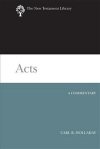
Highly respected scholar Carl R. Holladay offers an in-depth critical commentary on the book of Acts in this valuable work from the acclaimed New Testament Library series. Holladay offers a theological, contextual, and literary interpretation, paying attention to Acts as a rich narrative that accounts for the development of the early Christian church. He sees Luke’s literary style as an expression of its theological purpose. Holladay writes, “Convinced that Jesus’ life and death and the emergence of the early Christian movement occurred under divine guidance and continued the biblical story by fulfilling God’s ancient promises, Luke decided to incorporate them into a grandly conceived narrative told in a dignified yet dramatic style. Acts reflects the close relationship between medium and message, yet it also illustrates how the medium is the message.” Holladay’s commentary is theologically rich and steeped in narrative analysis that understands the high level of literary style as an expression of the theological content and the telling of the Christian origin.
Carl R. Holladay is Charles Howard Candler Professor of New Testament at Emory University. He is the author of several books and coauthor of Biblical Exegesis: A Beginner's Handbook, published by Westminster John Knox Press. He is the 2016-17 President of the Society of New Testament Studies.
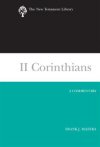
Frank Matera provides a commentary on II Corinthians in the New Testament Library, continuing the exemplary quality of the series. His work here is a close study of the backgrounds and language of the text while also providing important theological insights into the message of Paul for his time and for the contemporary church.
Frank J. Matera (PhD, Union Theological Seminary) is a professor of New Testament and Andrews-Kelly-Ryan Professor of Biblical Studies at The Catholic University of America. His previous books include commentaries on Galatians and 2 Corinthians, as well as New Testament Theology: Exploring Diversity and Unity.
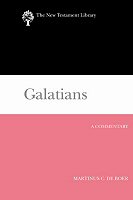
This commentary traces Paul’s theology as it unfolds in his letter to the church at Galatia, and illuminates how the Galatians likely received and comprehended it. The author asks readers to imagine themselves as silent witnesses to Paul’s dictation of the letter and to observe, through a historical perspective, how Christians at Galatia might have understood Paul’s words.
Martinus C. de Boer is professor of New Testament at Vrije Universiteit in Amsterdam.
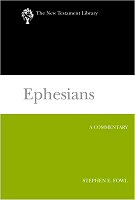
Even though it was written some two millennia ago, Ephesians still speaks to Christians today in themes quite familiar to the modern reader. In a predominantly Gentile context, the Christian community needed to be reminded of the priority of Israel and the astonishing work of reconciliation that God willed to accomplish in the life, death, and resurrection of Jesus Christ. This new volume in the highly acclaimed New Testament Library series reveals the great theological promises of Ephesians while discussing issues of context, authorship, and style.
Stephen E. Fowl is the chair of the department of theology at Loyola College in Maryland. He is the author of several books, including Engaging Scripture: A Model for Theological Interpretation, Reading in Communion: Scripture and Ethics in Christian Life with L. Gregory Jones, and the Two Horizons Commentary on Philippians.
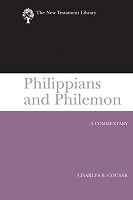
Together, these two letters show much of Paul’s vital passion for the church and the bonds that held early Christians together in their faith.
Charles B. Cousar is the Samuel A. Cartledge Professor of New Testament Emeritus at Columbia Theological Seminary, Decatur, Georgia. Cousar, who has made significant contributions to biblical studies, retired from his position at Columbia Theological Seminary where he received the Distinguished Service Award. He is the author of Theology of the Cross, An Introduction to the New Testament and The Letters of Paul.
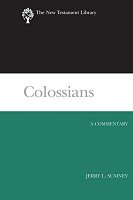
The letter to the Colossians offers great insight into the faith, life, and problems of the early Christian church. Understanding this letter to be one of Paul’s prison epistles but aware of the differences between this and his other writings, Jerry Sumney shows how the church struggled with expressing its new faith in the diverse settings of the Greco-Roman world. Paying special attention to the ways of forgiveness and salvation through the power of Christ, this fine commentary shows Colossians’ expansive Christology and expectant eschatology.
Jerry L. Sumney is professor of biblical studies at Lexington Theological Seminary in Lexington, Kentucky.
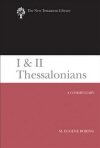
In this exciting volume, M. Eugene Boring offers a scholarly interpretation of I and II Thessalonians while examining their historical context. Boring helps the reader learn to read these letters in context, particularly in relation to Paul’s life as well as to the new converts who lived in Thessalonica. He addresses aspects such as structure, tone, style, language, and—for II Thessalonians—questions of authorship, while offering insightful theological perspectives. Boring’s critical interpretation is a welcome addition to the New Testament Library and provides a solid resource for both the academy and the church.
M. Eugene Boring is professor emeritus of New Testament at Brite Divinity School, Texas Christian University, in Fort Worth, Texas. He is a coauthor of The People’s New Testament, and the author of numerous books of New Testament scholarship, including the best-selling Interpretation commentary on Revelation.
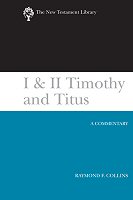
The Pastoral Epistles present difficult questions for the modern interpreter, including such matters as their authorship, literary characteristics, and social orientations. Raymond Collins carefully leads the reader through the texts of these three documents, attending to the flow of the pastor’s thought and locating it within the Jewish and Hellenistic culture of his day.
Raymond F. Collins, PhD, is a priest of the Diocese of Providence and is the dean of the School of Religious Studies at The Catholic University of America. He is the author of John and His Witness and Divorce in the New Testament.
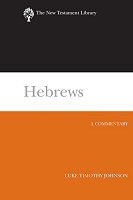
This volume of the New Testament Library offers a thorough and careful commentary on the complicated book of Hebrews, showing its meaning within the context of ancient culture and the theological development of the early church. Written by one of the leading New Testament scholars of the present generation, Luke Timothy Johnson, this commentary offers remarkable insights into the Hellenistic, Roman, and Jewish contexts of the book of Hebrews.
Luke Timothy Johnson the author of the Introduction, Commentary, and Reflections on the Letter of James, is Robert W. Woodruff Professor of New Testament and Christian Origins at the Candler School of Theology, Emory University, Atlanta, Georgia. His works include The Real Jesus: The Misguided Quest for the Historical Jesus and the Trust of the Traditional Gospels and The Letter of James, in the Anchor Yale Bible.
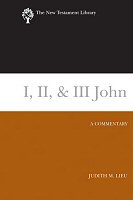
The New Testament’s three letters attributed to John have always provided remarkable theological riches for the Christian tradition, including the assertion “God is love.” Each letter shows how an early Christian author responded to threats against authority by recourse to the correct teachings of the faith and a proper understanding of the relationship between Jesus and God. Together, these letters argue for a bond of unity among believers, based on fidelity to the truth of God.
Judith M. Lieu is professor of New Testament Studies, King’s College, London.
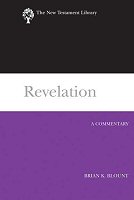
The book of Revelation is one of the most complicated in the New Testament. The book calls for a prophetic reaction to the world and uses some of the most violent language of the entire Bible. Brian Blount’s commentary provides a sure and confident guide through these difficult and sometimes troubling passages, seeing Revelation as a prophetic intervention and at the same time an awe-inspiring swirl of frightening violence and breathtaking hope.
Brian K. Blount is the president and professor of New Testament at Union Presbyterian Seminary. Prior to that he was, for 15 years, the Richard J. Dearborn Professor of New Testament Interpretation at Princeton Theological Seminary.
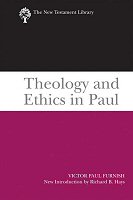
First published in 1968—and out of print since the 1980s—Victor Paul Furnish’s treatment of Paul’s theology and ethics has long been regarded as the key scholarly statement and most useful textbook on Paul’s thought. Now, Theology and Ethics in Paul is available once again as part of the Westminster John Knox Press New Testament Library. Featuring a new introduction from Richard Hays, this timeless volume is as relevant in this century as it was in the last.
Victor Paul Furnish is University Distinguished Professor of New Testament at the Perkins School of Theology, Southern Methodist University, in Dallas, Texas. His numerous publications on and contributions to Pauline studies set him apart as one of the premier New Testament scholars of our generation. Among his published works are contributions to Pauline Conversations in Context: Essays in Honor of Calvin J. Roetzel, available from Logos as part of the Library of New Testament Studies: JSNTS on Paul (17 vols.).
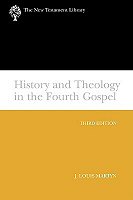
This volume surveys the scholarly work that has been done concerning the book of John. Biblical scholar J. Louis Martyn also provides his own reading of the fourth Gospel.
J. Louis Martyn is Edward Robinson Professor Emeritus of Biblical theology at Union Theological Seminary in New York City. He has written books and scholarly articles on various New Testament topics, notably Theological Issues in the Letters of Paul.
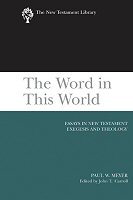
This volume brings together numerous publications that range across the New Testament canon and encompass a variety of forms, from thematic essay to commentary, from close exegesis to homily. All these studies highlight Paul Meyer’s characteristic attention to detail, skilled argument, and engaging prose.
Paul W. Meyer is Helen H. P. Manson Professor Emeritus of New Testament Literature and Exegesis at Princeton Theological Seminary in Princeton, New Jersey.
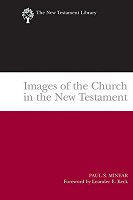
Paul Minear’s classic work identifies and explicates 96 images for the church found in the New Testament. First published in 1960, this volume has been used in seminary classes for over 30 years. Its rich discussions of the many images and metaphors make this book a splendid resource for students and pastors.
Paul S. Minear was Winkley Professor Emeritus of Biblical Theology at Yale Divinity School. Among his numerous books is The Kingdom and the Power: An Exposition of the New Testament Gospel.
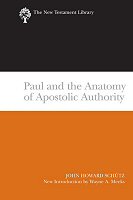
John Howard Schutz’s milestone analysis of Paul’s authority shaped a generation of thought about Paul. This insightful work continues to be relevant to Pauline scholarship.
John Howard Schutz was a professor of New Testament at the University of North Carolina in Charlotte.
Reviews
1 rating

David J. Beach
3/23/2019
Would REALLY like to see Gerhard Von Rad's - Old Testament Theology 1 & 2 included with this. It is a vital part of this series.
Ian Carmichael
9/24/2017
Superb value. Ah, if only I were building my library at the start of ministry rather than tailing off towards its close. Great resources. Even for the older works in the series, wisdom and judicious thought is never out of date and is always possible to learn from.Paul Whiting.
9/20/2017
I notice the collection doesn't include Lewis Donalson's I & II Peter and Jude volume in the NT library series. Why is that?
Douglas Miller
5/23/2017
Fantastic! So glad to finally see these wonderful sets on prepub, and at a great price. Tell your friends!